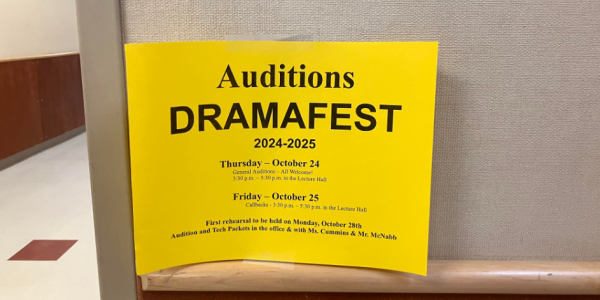Mr. Robot Season 1-3 Reveiw
How Mr. Robot’s quality confuses me
Major spoilers for seasons 1-3 of Mr. Robot
Rami Malek. If that name is familiar to you, and even if it’s not, you likely know him from his more popular roles in both film and television. Despite only having 37 IMDB acting credits, Malek has a handful of notable roles to his name. Flip from Bojack Horseman, Ahkmenrah from Night at the Museum, Josh from Until Dawn, and, of course, Freddy Mercury. However, there’s one notable credit I left out. With a lead actor as notable as Malek and an even more notable name in the form of Christian Slater as secondary actor, an attention grabbing story, and experimental episodes unlike any I’ve seen before, yet still mostly unknown by the general public. I am, of course, referring to Sam Esmail’s 2015 techno-thriller, Mr. Robot.
Now, before I begin, I should say this review is a mixed one. While I love this show, it is definitely not for everyone. Mr. Robot isn’t Breaking Bad, its flaws are far more clear, and despite being almost predictive towards our current times, it’s definitely not aged as gracefully in some specific areas as it would have hoped, even after only 8 years since its initial airing. But past this, I believe this show is still truly something special, and deserves recognition from those who find it in them to watch the show all the way through.
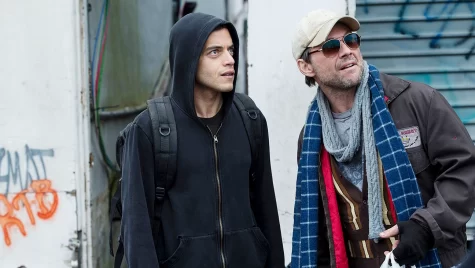
Mr. Robot itself has one man to credit as creator, showrunner, and writer for the majority of episodes, that being the aforementioned Sam Esmail. Esmail had a fascination with hacking culture and modern technology for a long time after watching a handful of hacker movies. He ended up spending around 15 years thinking up an idea for a movie exploring what the concept could add to a story. After seeing the full length of the script would be far longer than expected, plans changed and he adjusted the concept to accommodate. Mr. Robot spent 4 seasons on the USA Network to extremely high praise, but raked in what was considered poor viewership in its time, with an average of 0.74 million viewers for its second season (later seasons increasingly dropping in viewership can be credited towards the decrease in television viewership as a whole).
I have very mixed opinions on Mr. Robot. The show is by far one of the most confusing mixes of frustrating flaws ingrained into its very foundation and beautifully done work unlike any other I’ve seen in my life. There’s a lot of aspects to consider about the show itself, aspects I cannot explain in a reasonable amount of words here. I do, however, think the basics of a show is the best place to start forming an opinion, even if I end up taking a few thousand words to get them out.
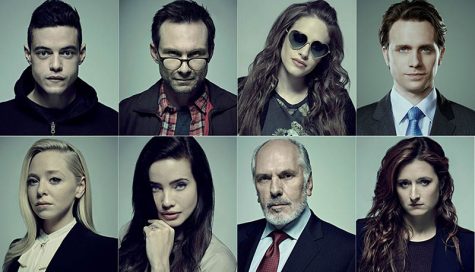
Throughout its run, Mr. Robot introduces its fair share of colorful characters, switching out various roles intermediately, but sticking to the same main few characters. The show uses the main character/ supporting characters format, focusing mainly on Elliot, but typically switching to one of 4 different supporting characters between main plot scenes. Characters are by far the where show is able to strive the furthest, using both known and unknown actors to really hold onto the audience with both writing and acting alike.
As far as main characters go, Mr. Robot has Rami Malek as Elliot Alderson. Looking at main characters of the same genre, Elliot’s exterior is pretty standard, enough so to make his character feel predictable to those only watching the first episode or so, but when you look deeper the character really shines, especially in reference to the show’s titular character. Alderson is a socially awkward but highly advanced gray-hat hacker with mental health issues living in New York City. This is a character shown to be intensely morally gray, hacking anyone he can in order to help with his crippling social anxiety, despite working in cyber security. Where Elliot’s character really starts to shine is by the end of season 1, in which the show reveals he has Dissociative Identity Disorder, misinterpreting his alter, Mr. Robot, as a man he had just met due to memory issues, a fact that causes him to spiral. After this reveal, Mr. Robot and Elliot are still treated and represented as separate entities, so I will respect that and save my discussion of Slater’s character for the plot section. According to many, both those with DID and professionals on the subject, the writing of the pair is worthy of praise, many citing the accuracy and research when it comes to them being astronomical in comparison to most other representations of the condition in fiction, same extends to specifically Elliot’s depression. Much effort is shown when making sure Elliot isn’t just his mental illness, a very important part of writing a character shows like this often neglect. Elliot is funny, emotional and genuinely smart, he has legitimate motives in both family and belief but does learn still, he’s a person, and they treat him as such. Even if he sometimes acts irrationally when under pressure, Elliot is never portrayed as ‘crazy’ or ‘unhinged’, which is a very important aspect of the character. When it comes down to it, Elliot may be one of the best written main characters I can think of, he’s largely unaffected by many of the show’s bigger flaws and is one of Mr. Robot’s most interesting characters.
When it comes to the main supporting cast, none can claim to be more prevalent then Carly Chaikin as Darlene Alderson, the only character that is recurring in all 4 seasons. Being Elliot’s younger sister, Darlene is a character with varying importance, as well as inclusion in most plotlines. She’s a character able to hold an emotional, tragic, interesting story while maintaining a fun aesthetic and personality. We see her time and time again show her ability to very easily stray from being ‘girl Elliot’, a task that can be difficult when they share the same upbringing and background. Another important aspect of Darlene is her relationships, romantic, platonic or familial, Darlene has some of the most realistic relationships in the show. I am particularly drawn towards her relationship with Elliot, the fact that big arguments don’t make them stop talking ever, the fact that they seem to care even when mad at one another, it’s an aspect of being a sibling that many neglect to include in a lot of media. Of the main cast, I would definitely cite Darlene as one of the strongest characters.
As for the rest of the main supporting cast, we have Portia Doubleday as Angela Moss, the Alderson Siblings’ childhood best friend, Martin Wallström as Tyrell Wellick, the Swedish businessman turned murderer and hacker, an on again off again minor villain of the show, and Grace Gunner as Dominique “Dom” DiPierro, a high ranking FBI agent focused on the main cyberattacks of the show. These three switch on and off over the four seasons as B and C plot focuses, only sharing one season all together (Angela ending her time on the show on the opening scene of season four, Tyrell being in hiding for all of season two, and Dom having been introduced at the start of the season two), this tactic keeps the story from holding too many plotlines to follow, while keeping the characters familiar. Now, of the three, Dom is by far the weakest. Having that initial lack of connection to any established characters was a deep hole to start a character in for sure, and definitely wasn’t helped by her late introduction and immediate goal of working against already established characters many had already grown attached to. That being said, Gunner’s performance was absolutely the saving grace of the character, adding likeability and charm enough for me to lack the ability to really find myself hating her for too long. If Dom had lacked any outstanding performance, the character would have more than weighed down the show. As for Angela and Tyrell, the pair are both very different breeds of fascinating. Tyrell is an interesting look into how time can change opinions on characters in audiences, even if they never grew for the better. Angela is an interesting look into how drastically a role of a character can change in ways so unexpectedly, from childhood friend to manipulator, Allsafe to E Corp to Dark Army. These characters, despite the weak link, are quite strong, and are definitely a large part of the show’s capability.
Until now I have largely kept myself from sharing anything but the necessities when it comes to the plot, that’s in part due to the complicated nature of it. Mr. Robot is a show focused on hacktivism, the act of using hacking for political and revolutionary purposes, due to this, the show is focused on hacking and extremist politics, two of the most complicated concepts to grasp when discussed in detail. Aside from that, the show also has a large focus on mental illness, but more specifically that of depression and social anxiety with Dissociative Identity Disorder as a main focus and driving point of the show, yet another big aspect I find myself explaining to my mom while watching an episode together. As amazing as the sum of the parts ends up, the complexities of those parts themselves lead many to confusion while watching, making watching with others almost a necessity in order to pool knowledge and explain concepts. When It comes to the plot itself, the differences from season to season are far too vast for me to review them as a whole.
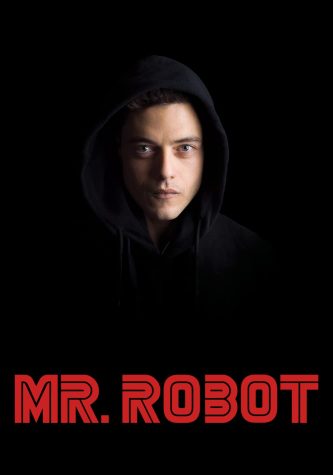
Running from late June to early September of 2015, season one is definitely not my favorite, but really shines in ways you wouldn’t expect. Season one has a lot going on in its 10 episodes, but focuses mainly on the preparation of the main inciting incident, that being a hack largely intended to create wealth redistribution by taking out digital bank records of debt, known as the Five/Nine Attack. The season shows Elliot balancing working towards this with the other members of his group ‘fsociety’, his short lived love life, and his job as a coder for the cyber security firm AllSafe. Due to the clear goal and motivation this side is kept pretty concise and easy to understand for most audiences, coding talk aside, along with this there are also two smaller plotlines that run throughout the season, of those the most interesting is definitely Tyrell’s. Throughout the whole season, Tyrell is seen going to further and further lengths to obtain the position as CTO of E Corp, a main villain of the season and crucial villain for the rest of the show. With his actions being so drastic, the subversion of his competitor for the position beating him was pretty unexpected, what more unexpected is him then strangling the now CTOs wife to death on the roof during the celebration party out of anger. Following this incident, the second half of the season for Tyrell is mainly just the consequences. A short murder investigation leading directly towards him when he then runs away, standard B plot murderer stuff. While definitely not enough substance for a whole show, Tyrell’s story here is definitely a nice way to break the episode up, and eventually does collide with Elliot’s in the finale in a way that’s really satisfying, and making you question if Mr. Robot killed Tyrell in self defense the whole of the following season. Angela’s on the other hand isn’t half as noteworthy. Much of what makes up our third plot this season is just a lot of inconsequential stuff with no large scale bearing on the plot. Unfortunately, this plotline gave Doubleday far too little chances as the amazing actress she is, an issue soon mended in the following two seasons. Overall, while simple, season one was a great way to introduce audiences to the characters and concepts, even if the season has some flaws in retrospect.
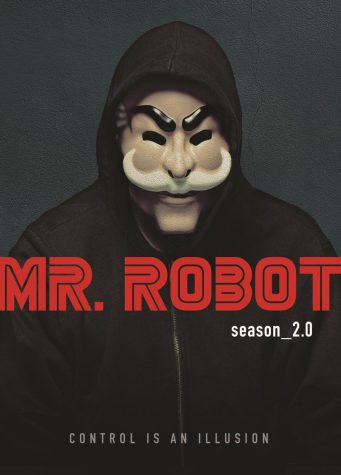
Season two, having run from mid July to late September 2016, while a great 12 episodes of television, is my least favorite of the three seasons we will be looking over. The focus of season two is by far the most split, a negative aspect added for a very cool moment in the latter half, effectively detracting from the first seven episodes, and adding to the following five. From episode one to episode seven, Elliot, the show’s main focus, is separated from the story, implied to have gone back to New Jersey out of shame after initiating the Five/Nine Attacks, which had the unintended effect of furthering class divide, and harming those he seeked to help. Throughout the season he finds a lot of trouble dealing with his DID and depression. To turn six hours into a sentence, in the episode 2.5_h4ndshake.sme we learn that Elliot had intentionally imagined most of the whole ordeal, in a beautiful scene that I didn’t see coming, we learn that Elliot had been in jail for hacking, blackmailing, and stealing the dog (long story) of a particularly vocal and justified victim of his vigilante justice. This twist, while ultimately leading to a better season in the end, harms the proceeding seven episodes, disconnecting the stories of the characters and complicating some of the most important aspects of the season. Regarding the following five episodes, the eventual connection between four main stories is almost made better by the first half. Aside from Elliot we have Angela’s story, showing by far the most interesting era of the character in my opinion, as well as the most drastic shift. I am of the opinion that Angela’s story starts off pretty subpar initially, continuing the legal dispute with E Corp, as well as beginning to work as a higher up in E Corp as well. Her story takes a shift as she begins to investigate E Corp internally and comes across damning information on their connection to the notorious hacker group, the Dark Army, information she is kidnapped for the moment she tries to do something about it. Following this incident, Angela changes sides drastically, completely revitalizing a character I was growing more and more bored off for the initial 19 episodes and completely subverting her into a brainwashed anti-hero. When it comes down to the remaining two storylines, I have to say, they left me a tad bored most scenes. With Dom’s storyline, I found myself having trouble being too deeply invested in a new character like this, while Darlene and the fsociety have all the likability with characters, but lack the memorable moments to hold the watcher’s interest, only really picking up when the group disbanded and Elliot got out of prison early. All that said, season 2 is a capable season, despite his separation, Elliot’s story continued to keep things interesting, holding together the show in moments when it would otherwise leave me bored, having some of the most legitimately depressing moments in the show and giving us a better understanding of both Mr. Robot and Elliot.

Mr. Robot’s penultimate season was absolutely my favorite of the three discussed here. Starting mid October and ending mid December of 2017, season 3 picked up immediately following the former season’s finale, in which Tyrell is revealed to be alive and well, working with Mr. Robot behind Elliot’s back, who are subsequently shot by Tyrell in confusion. This season primarily focuses on two main sides. The first being the ‘new’ definitive villain, the Dark Army, having our newly brainwashed Angela, along with former partners turned rivals, Mr. Robot and Tyrell. Opposing them is the other half of the main characters, that being Elliot attempting to stop any further plans on his own, as well Darlene attempting to help Dom and the FBI arrest Tyrell out of concern for Elliot’s safety. Our main focus this season is Mr. Robot and Tyrell’s plan as it was revealed to Elliot in the season 2 finale eps2.9_python-pt2.p7z, destroying important E Corp financial paper documents by exploding batteries in the facility to catch a light, effectively destroying the company with the documents with no plan of evacuating anyone beforehand. Elliot spends the season working against this, getting a job at E Corp in IT to work towards stopping this internally. Elliot’s plan is pretty simple, stopping the actual explosion with his own code and keeping the files from being shipped from the 71 warehouses to one location, much to the anger and confusion of Tyrell, still not understanding DID. Transitioning to Tyrell’s story, we begin one of many strong aspects of the seasons, and where the character really shifted me towards the character. Tyrell takes a turn from anti-hero to straight up villain in this season, having motives far more skewed and incomprehensible, claiming himself and “Elliot” gods and their hacking proof. Lacking any understanding of Elliot’s DID, even with Angela’s attempts to explain, Tyrell is left convinced of betrayal. After Mr. Robot sees that Elliot had been messing with his plan and tells his partners, Tyrell hatches his own plan, changing it behind everyone’s back. Tyrell’s plan was kept vague, only really being implied, so when Elliot and Mr. Robot’s fight for control in the episode eps3.5_kill-process.inc ends with Elliot convincing him to give in and stop the explosion in the now empty building; we expect he won. The subversion of the scene in which we are shown what exactly Tyrell was planning is one of my favorites, everything cut out but music as everyone looks to phones or TVs in horror, seeing Tyrell was able to set batteries in all 71 warehouses to blow, killing over 4,000, using the initial building as a distraction for Elliot. Aside from that, Angela and Darlene are both very strong this season, with Dom improving vastly from the second season. Angela plays the role of dealing with both Elliot and Mr. Robot, keeping the latter in the know, while trying to convince the former she’s on his side. Darlene on the other hand spends the season helping the FBI with her knowledge and position in the lives of many people of note, attempting to help in any way to keep Elliot safe from danger. What we see here is a season that has so much to love, but the amount of characters actively involved and the lack of downtime for the most part leaves it difficult to follow every storyline, causing some to have trouble getting every aspect of the plot. Along with that, the lack of one big motive in the second half definitely adds to the confusion, while amazing, it lacks a clear goal or direction for the characters.
Unfortunately, the above descriptions purposefully left out some of the more pressing issues of the show. This is where my opinions of the show itself get put aside and we get down to the aspects of the show that are less what I consider to be bad, more what is indisputable as flaws.
Let’s start off with what I personally feel the most at liberty to talk about, the treatment of LGBT characters. Mr. Robot has quite a few characters either stated or implied to be LGBT, I think to explain the issues on this, I’m going to have to start off with explaining Tyrell a little further. On the episode ‘eps2.9_pyth0n-pt2.p7z’, the finale to season 2, we see a scene directly following Tyrell shooting Elliot for intervening with the plan, exactly as Mr. Robot had ordered him to. While still in a panic, Tyrell called Angela, sparking the following scene:
“(Tyrell,) I need to be the first person (Elliot) sees when he wakes up.”
“Okay…”
“Tyrell, you did what needed to be done.”
“I love him. [crying]”
“I do too.”

The way I see it, this, along with his genuine love for his former wife, is indicative of Tyrell being either pansexual or bisexual. This scene itself is purposeful juxtaposition, using a character shown to have romantic feelings for Elliot on multiple occasions, Angela, to juxtapose Tyrell seemingly mirroring those feelings for Mr. Robot. There’s one only one way I feel this can be interpreted, both considering what makes this scene even work and the other times we see this character repeat the same sentiment, Tyrell is referring to romantic love rather than platonic or any other form. As anyone that watches Mr. Robot can tell you that, of the main cast I have listed, Tyrell is morally the worst (trust me, there is proof of him being LGBT I am not allowed to get into in this article that can prove both his sexuality and status as a morally incomprehensible person indisputably) and that alone wouldn’t be an issue, so long as any other LGBT characters were able to balance that out. Mr. Robot has five LGBT characters shown in the first three seasons, those being Tyrell Wellick (as was mentioned before), Dom DiPierro (a lesbian being used as a cop character in an anti-authoritarianist show, being against our main characters, and being painted vaguely as a villain), Darlene Alderson (having been introduced as bi/ pan while seducing Dom for her ID for hacking purposes, effectively exploiting Dom and her feelings for her), Gideon Godard (a gay man who is by far the best here morally for the 9 episodes we see him alive for, but, and you probably already guessed this, unceremonious killed off mid way through an episode for reasons that hold no plot significance with no mention of the death’s effects on his husband, or for a matter of fact, any mention of him at all), and whiterose (a trans woman who is the leader of the Dark Army, committing not only murder, but actual brain washing, election rigging, capitalist excelirationism, extortion, torture, corruption of the Chinese government, and various cyber-crimes). The show takes care to respect identities, accurately represent mental illness, and avoid sexism, which is honestly why I see this as an honest attempt at representation, mixed with a dash of oversight. While these characters are all amazing and inoffensive on their own, as a group they unintentionally show the same homophobia and transphobia the show actively goes against, intentional or not, this is a huge flaw of the show.
Other general issues of the show aren’t quite as real. As is obvious with my season reviews, the show has issues with complexity worse than this article (which should be impossible). Due to complications with pacing and overlapping storylines, understanding a story takes excessive focus on the part of a viewer, more than should be necessary. This aspect has a sister issue though, Mr. Robot has a chronic problem with how extensively it uses aspects of the show that should be positive. The biggest example I can use to help me explain this is the way they use ‘show don’t tell’. Mr. Robot has two main reveals that I feel were not explained to the audience well enough. With the reveal of Elliot’s DID, without actually using the words to tell us, I thought for a good while Elliot was schizophrenic and Mr. Robot wasn’t real, only realizing part way through the second season I was wrong. Another reveal was that of whiterose and Zhan being the same person despite drastic differences in location, demeanor, voice, hair, and gender, a reveal the watcher is expected to pick up on, risking a lack of understanding. Many other aspects of making a good show suffer the same confusing overuse, causing a lot of difficulty paired with the complexity. This is all to say, while set up nicely, Mr. Robot is anything but easy.
Like I said, my opinions on this show are far blurrier than any other show I’ve come across. While the show has some huge, unavoidable flaws, I can’t help but find genuine love for the cinematography, the characters, the story, the world, the framing, all of it. Mr. Robot holds a special place in my heart, a place I can be critical of, but a special one nonetheless. If you haven’t already, I implore you to find a way to forget this article and watch this weird, confusing, beautiful mess of a show. There’s still so much more to discuss when it comes to this show, music, motif, symbolism, secondary cast, relationships, acting, cinematography, symbolism, all stuff I would add if not for the excessive length at this point. That’s not to say a possible part two isn’t going to happen, but I have to end the article here.
If I had to rate this, I would give it simultaneously a 9/10, as well as two and a half stars. Let’s round it and give it a 5/9.


